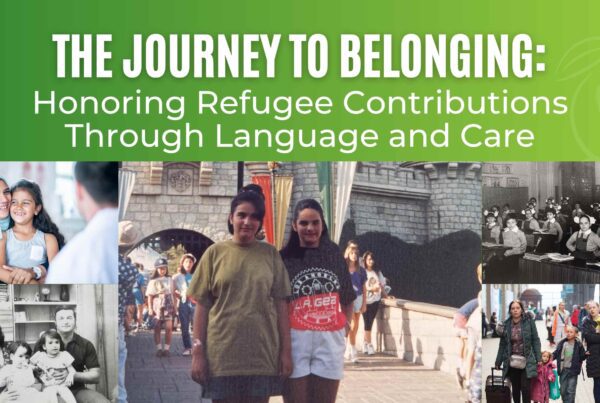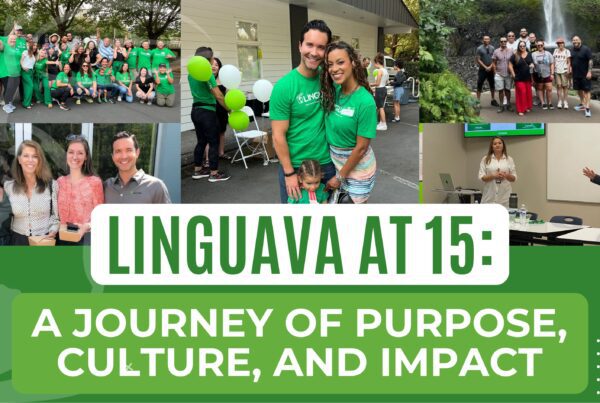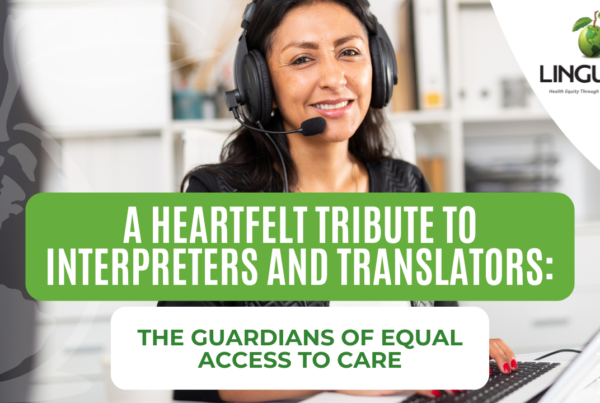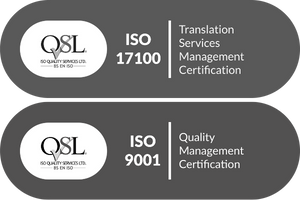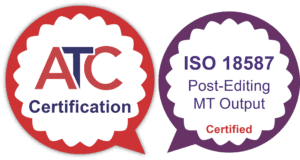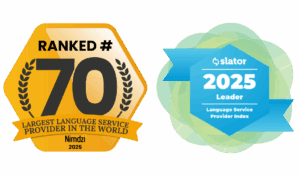Imagine becoming ill and not understanding the implications of your illness. Imagine not fully understanding how to get healthy or what your diagnosis meant for your future. Medical terminology can be difficult enough to understand in one’s native language, let alone a foreign language. At Linguava, our interpreters convey all critical information and are empathetic to clients who are navigating difficult medical situations. Our medical interpreters are HIPPA certified and qualified to provide the highest quality medical interpretation services. Imelda is a Lead Navigator at Linguava whose passion for the language industry stems from her medical experiences after immigrating to the U.S. from Mexico.
A Tragedy drove Imelda to pursue a career in the language industry. Imelda had married and after moving from Los Angeles to Oregon, her husband was diagnosed with cancer and began a series of medical appointments and chemotherapy. “Through the process–and I’m talking about 18, 20 years ago–the interpreting services didn’t exist,” said Imelda. “When he got diagnosed, we had so many questions. No answers. We were left up in the air many times with a lot of information, but we couldn’t understand a lot of the medical terminology back then.”
When Imelda’s husband passed away after undergoing a bone marrow transplant, the hospital staff showed little empathy and support. “That morning after he passed away a social worker of the bone marrow transplant team came and dropped three books for me on a table,” said Imelda. She told me, ‘Go home and with these three books you can explain [to] your kids what just happened here. The books talk about life and death. I’m pretty sure they’re going to be helpful.’ She left and I was in shock.
“Another person came, and I don’t even know who he was, and told me that I had only three days to take his body out of the hospital or he was going to be placed in a common grave, some place where they dispose bodies who had no funds and no family,” she continued. “I had so many questions and probably no words at that time. As I say, my English was very limited, but I remember I drove. I got out of the hospital by myself and I was driving and thinking, ‘How am I going to go home and..explain [to] my three kids what just happened now, and from where am I going to get money to bury my husband?
Right now, as an interpreter, when I am in the field and I get exposed to a lot to cancer patients. I go a lot to Compass Oncology. They’re not alone. We’re there for them. I feel like we are their voice.
“Right now, as an interpreter, when I am in the field, I get exposed to a lot of cancer patients. I go to Compass Oncology a lot. They’re not alone. We’re there for them. I feel like we are their voice. I wait for them to understand what’s happening, what’s coming after. Maybe, somehow, I want to give them hope, support, love. I don’t know if when David [Brackett] decided to create this company, he ever had the idea of what was going to happen in terms of how we were going to be able to support the community and help the community. He probably didn’t have any idea. We’re really doing a big change. We are completely impacting many families and communities with our services. It’s amazing. It’s amazing. I am a lead navigator in Linguava, not interpreting much as I used to. If I have an appointment that we’re not able to fill, especially if it’s for a cancer patient, I leave my desk. I step out and I go to the hospital and I help that patient.”
Stories like Imelda’s are what inspires Linguava to always put people first. These stories have shaped us to become who we are, and are what drives us to make a change in the community. From doctor’s offices to classrooms to courtrooms, Linguava gives a voice to those who need one.

